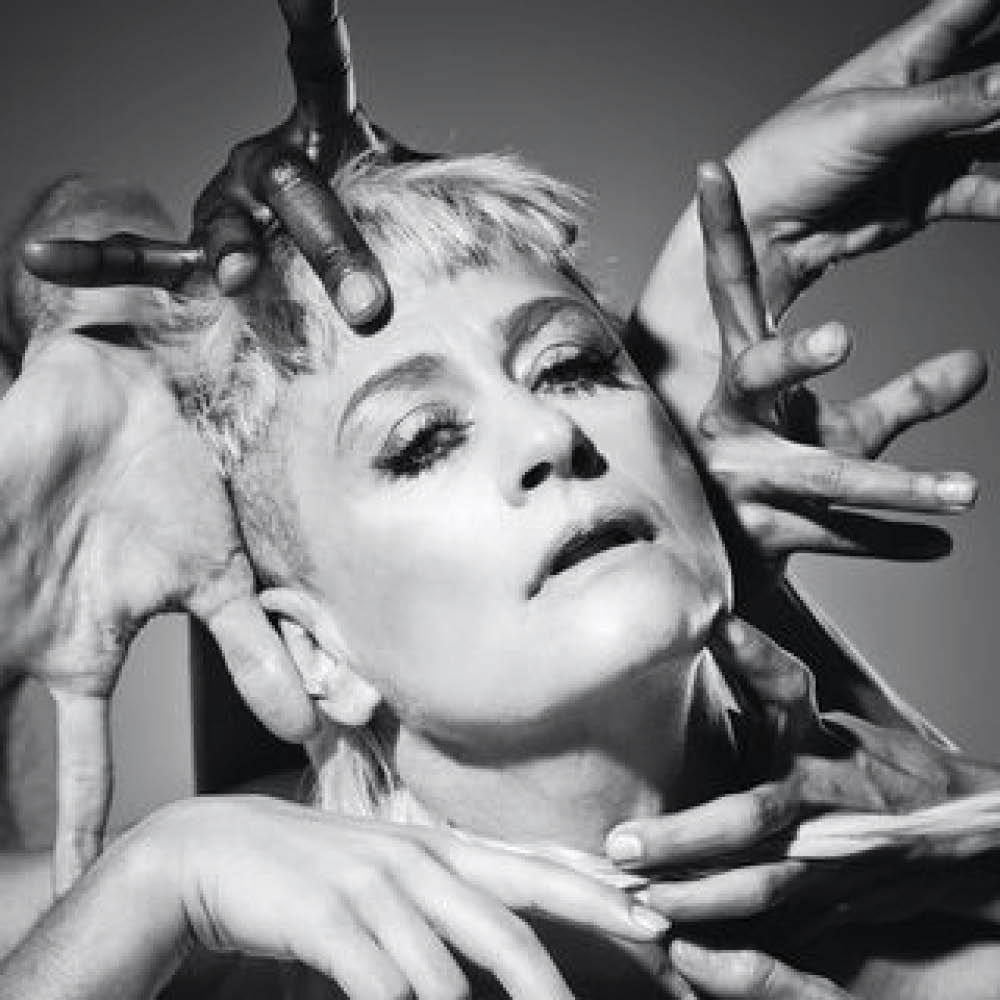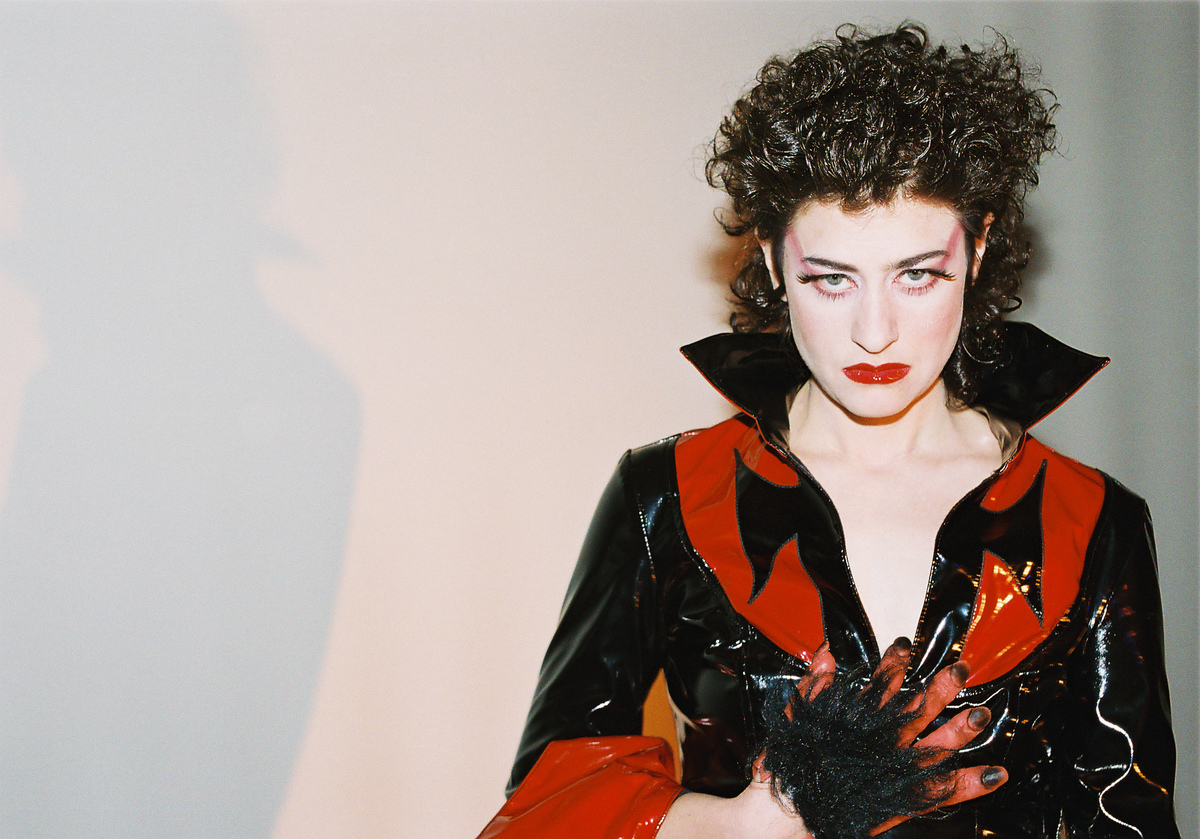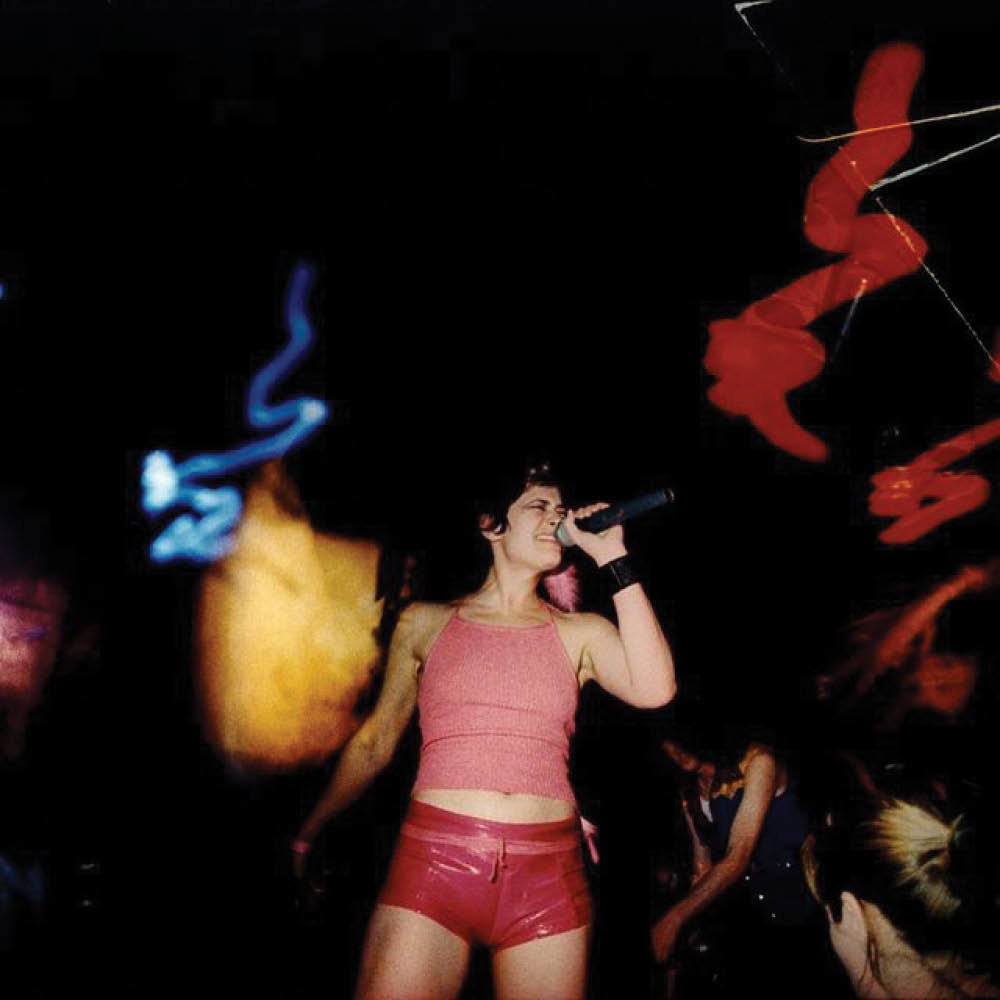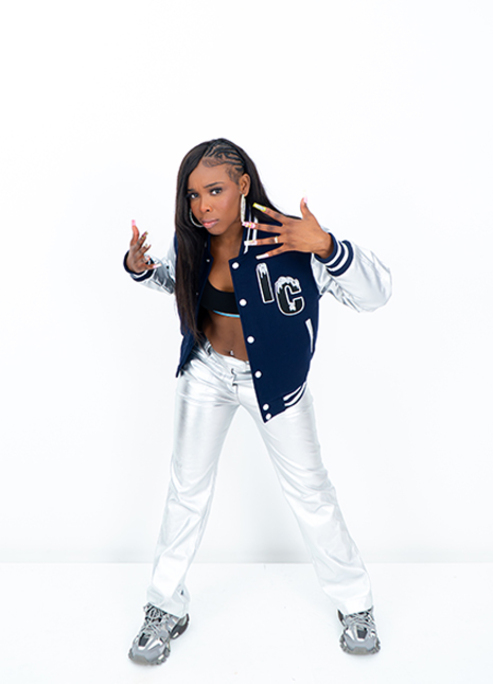Peaches: Revisiting 'Teaches of Peaches'
Peaches on her breakout album, the meaning of Pride and pink hot pants.
Peaches, the electro-pop punk icon has started her anniversary tour for her breakout album, ‘Teaches of Peaches’. The album was self-produced and created in Peaches bedroom ‘between sessions of masturbating’. In 2000, the album was met with a reception of confusion as it blended elements of classic rock, punk, early hip hop and electronica. It has since been canonized for its sexually charged lyrics and cheeky wordplay.
Peaches, you grew up in the suburbs of Toronto, Canada - but you're now based in Berlin.
Yeah. I've been in Berlin for 20 years.
What drew you there?
Well, I made the “Teaches of Peaches” album in Canada, but I had visited Berlin. And when I was visiting there, I was quite taken by the freedom there. It was like 1998 when I visited and the wall had just come down nine years before, so there was still a lot of empty spaces, lots of opportunities for artists to just like, live cheap and work and not have to worry about, you know, commercial value.
So it was much different than in Toronto where they didn't really understand what I was doing. You know, Toronto had a history of very, like, folk-based rock. They really didn't understand what was going on when I was doing what I was doing.
I got signed to a small German label in Berlin called “Kitty Yo”. At that time, you couldn’t do everything on the internet in that way. So it was like, ‘I'm gonna move there’. I'd saved up some money and once I moved there, the label had signed me. Two weeks later, I was already doing interviews and playing live shows that was just on a roll.

Growing up, who influenced you musically?
I was very influenced mostly by just pop music on the radio. A lot of it was very, you know, patriarchal. When the women say they were subservient to the men, even when you have Diana Ross, singing “Upside Down”. The song upset me, where it’s like, ‘Respectfully I say to you, I'm aware that you're cheating, but no one makes me feel like you do’, ‘Oh, you're okay, you can cheat on me because you're a guy, but I'll just be here for you’. Or like you know, Rod Stewart singing, ‘Don't say a word, my virgin child,’ ‘Spread your wings and let me come inside’. And she's obviously an underage girl. Just all the songs that were singing along with that. That did not respect women.
So, yeah, I guess I was influenced a lot by questioning what I was listening to. I loved music, but then I was like, ‘Well, what am I singing along to?’. So it's sort of, influenced by proxy in a way. But, you know, there was 70s Rock, which I really loved and punk rock music and early hip hop, and then the 80s Electro. It was in real time for me, and I was, I was having it all.
Yeah, and image-wise, it was really interesting in the 80s, because you had all these hard rock males, like Motley Crue, and Whitesnake. And then you had, Duran Duran and they looked like drag queens. That was the look. So in a way, somehow they turned it into some sort of a macho thing, but it was so you know, makeup and tight clothes and all that. It was pretty interesting.
Coming back to ‘Teaches of Peaches’ twenty-two years later, how do you feel about the album?
I just, it's funny, you know, because I had to revisit all the songs. And it sounds quite fresh to me, I think because my approach was very minimal. I wasn't layering the sounds, you know. Every sound has its prominent space and its moment in the song. It doesn't really sound dated, it just sounds like a very minimal, direct thing on its own. I don't think it's a specific genre or anything, but I just think it's got its own vibe, and the vibe sounds fresh. And I think lyrically it fits in a lot more than it did back then. Because I think a lot more female identified people are making obviously very direct, queer, inclusive, and empowered lyrics, you know, so people don't give a fuck anymore. Which is great.
We think it's cool because you were doing it at a time when maybe, it wasn't being so accepted in the mainstream.
I was very aware of all that. And said that I would like the mainstream to come closer to me not mean move into the mainstream, like, I have to change things to be part of the mainstream. I didn't believe in the mainstream, I didn't believe that mainstream was inclusive enough. So that was my, my thinking. And I feel like, yes, that's happened, that cultural shift has happened where the mainstream has been controversially more inclusive. There has been more awareness of queer, trans issues and intersectional, feminist discourse. You see it in all the media and you see it in in the shows and how it's inclusive, but you also see a conservative trying to make a backlash where you have in America, trans teen rights being taken away, their health is not recognized and the same with you know, abortion laws. With that said and all the controversy, it's definitely still in the media and more talked about and discussed.

What sort of visual imagery, do you think, encapsulates the album?
Just a pair of hot pants, pink hot pants, let's just leave it at that. I feel like hot pants are quiet, even though people say, ‘Ooh, sexy and tight’, I feel like they're quite gender-neutral in that way. And that color really radiates sexual energy and things like that.
What does Pride mean to you?
Listen, Pride means just being who you are and who you need to be every single day.
Your concerts create lots of spectacle and dynamics with and for the audience, how do you approach designing this?
In terms of staging, I've come very much from like a directorial role. I am very interested in seeing the whole trajectory as a whole. It’s not just playing songs, it's also the music, the movement, the rise in the dips, and the excitement in the surprises for the whole show. So I just take that all into consideration. There’s always a place in the front where people can perform, then there's this sort of like, risers, which in kind of step form. So you can walk up and down the steps, but it also creates great levels for people. All our instruments, when we can, are wireless. So that if you're playing guitar, you can move around the stage and have the stage as empty as possible. There is a drum kit but you can make different shapes and configurations using the lights as architecture, to make little spots or create the whole stage with lots of movement and chaos.
We must say you have an amazing stage presence. You know, it's an experience. It's not just going to a concert.
It's definitely an experience. I'm not interested in just showing up. I'm interested in blowing minds and I want people to feel and experience - and I want to have that too. I want to have the connection with the audience. I feel like when you hold back, it actually makes it harder for everybody. It makes it harder for the audience and on you as the performer. I just want to give what I want to give.

Who are your favorite up-and-coming artists?
Lil Mariko - she's amazing. I love Cobra. I love Cali. I love BIA. I love all the American female dirty rappers right now. Rico Nasty is amazing. Yeah, there's some great, amazing stuff coming up. And I love how irreverent everybody is. They don't feel as purist as people before. They’ll use new metal guitars over minimal hip-hop beats or cloud rap, and it doesn't matter. People just mix it up.
What’s next for you?
Everything. I'm just going to look at this tour and evaluate what I was thinking before this tour, what I wanted to do moving forward, and then try and evaluate what's going on and what I want to do.
Up Next, Megan Thee Stallion Stuns In Mugler In Her "Plan B" Video












